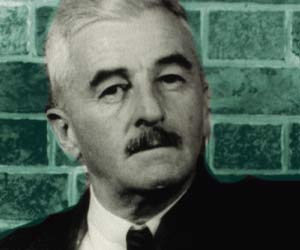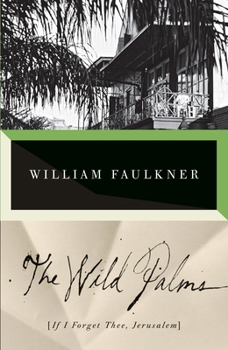The Wild Palms
Select Format
Select Condition 
Book Overview
In this feverishly beautiful novel--originally titled If I Forget Thee, Jerusalem --William Faulkner interweaves two narratives, each wholly absorbing in its own right, each subtly illuminating the other. In New Orleans in 1937, a man and a woman embark on a headlong flight into the wilderness of illicit passion, fleeing her husband and the temptations of respectability. In Mississippi ten years earlier, a convict sets forth across a flooded river,...
Customer Reviews
If it doesn't have punctuation in the title, it's not really Faulkner
"The Wild Palms"--used as a meditation by Thomas Merton
Buy it, read it
A Great Introduction to Faulkner
How inevitable the wheels of unkind fate
The Wild Palms Mentions in Our Blog

When he was in college, our Regional Director William Shelton was told his writing was like Faulkner! And he…recoiled in disdain. For Faulkner newcomers and fans alike, William’s experience learning to appreciate the classic author gives a great understanding of why Faulkner has made such an impact.





